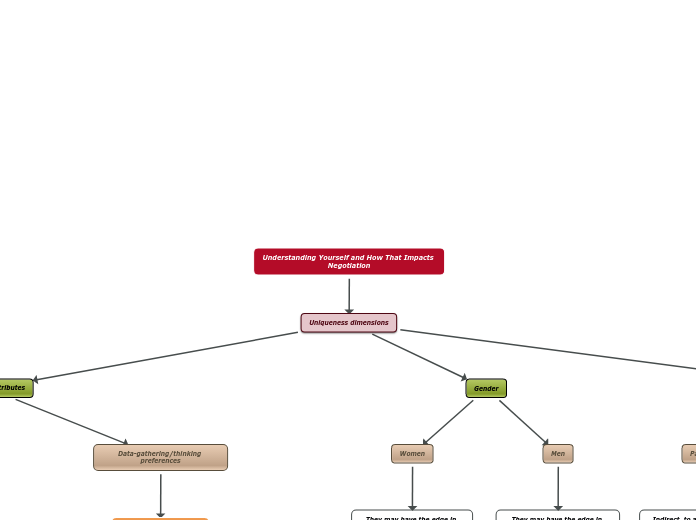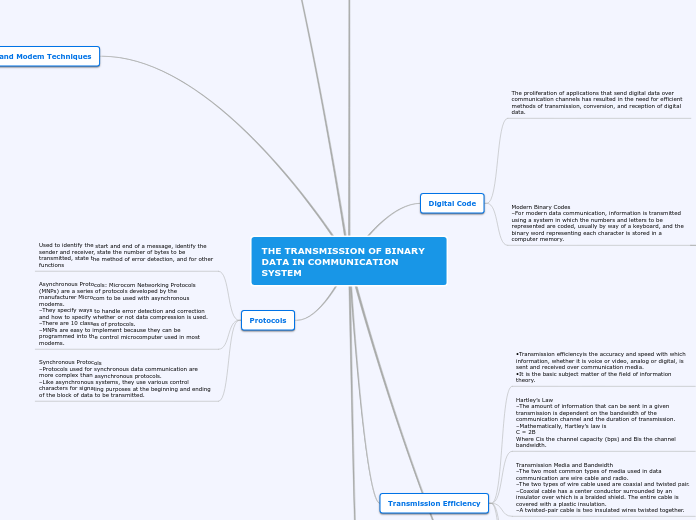Understanding Yourself and How That Impacts Negotiation
Uniqueness dimensions
Communication style
Assertive
Fairness, directness, honesty, tact, and sensitivity, and involves speaking up for your rights and taking into account the rights and feelings of others
Aggressive
Exerting control over others, humiliating others, dominating, being pushy, always needing to be right, using absolute terms, and blaming others
Passive
Indirect, to avoid conflict, be easily persuaded/bullied, and be overly concerned about pleasing other
Gender
Men
They may have the edge in distributive negotiations, and may be seen as too competitive and unsympathetic to build collaborative relationships
Women
They may have the edge in integrative negotiations focusing on building long-term collaborative relationships among negotiators
Personality attributes
Decision-making/doing preferences
Cooperatives (Idealists and Guardians)
Focus on harmony and values, often giving into the others' wishes to keep the peace
Utilitarians (Rationals and Artisans)
Concerned with with logic and structure and tend to ignore feelings and neglect relationship building
Data-gathering/thinking preferences
Temperament Sorter four temperaments
Idealists
They enjoy jobs that allow them to support and encourage others
Rationals
They enjoy jobs that demand a high level of expertise and high standards in competence
Guardians
They prefer jobs that demand responsibility
Artisans
They prefer jobs where they can troubleshoot
Self-monitoring
Tendency to adjust our behavior relative to the changing demands of social situations
Locus of control
Internals
They believe they have control over their actions
Externals
Tend to view fate or luck rather than personal effort









